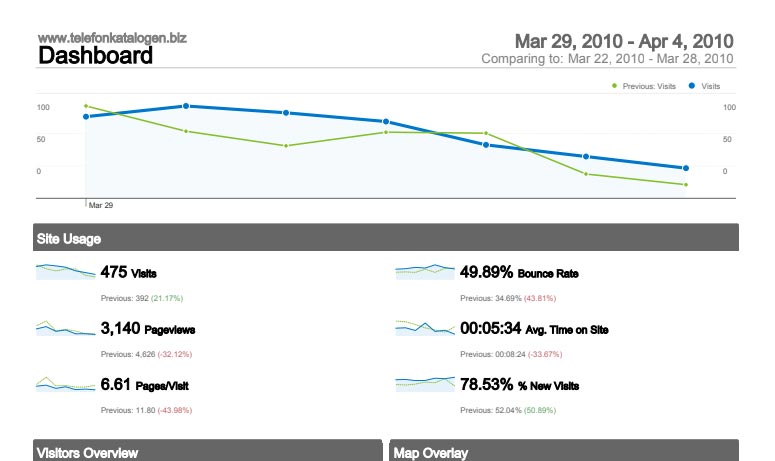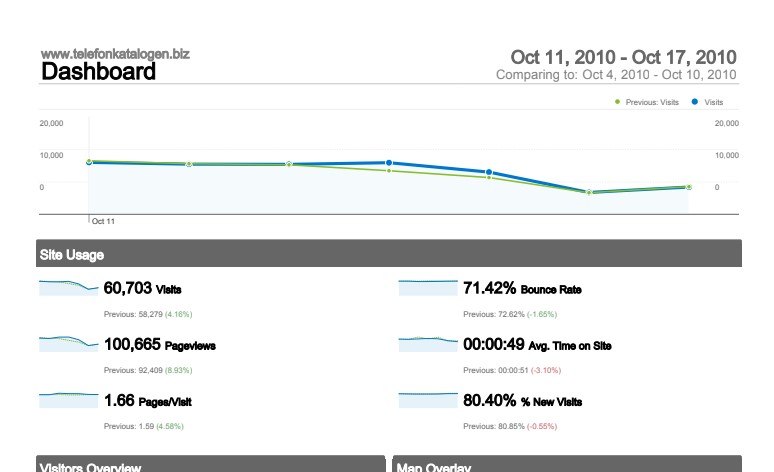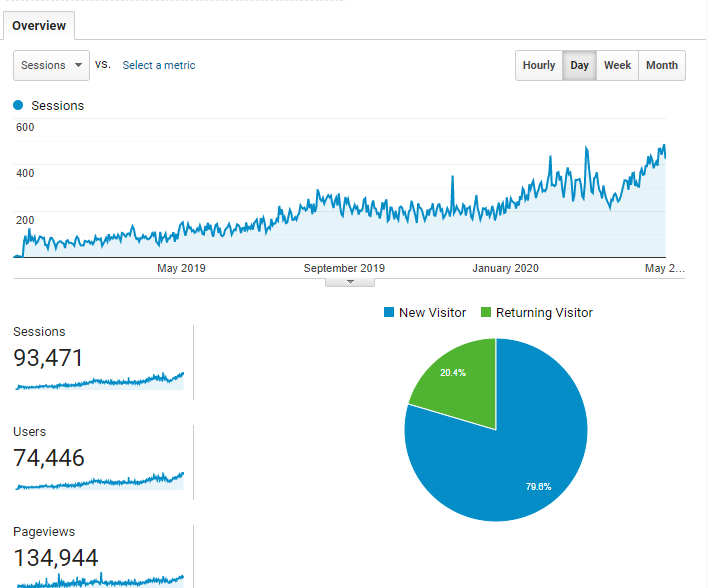Keyword research is the reason for any successful online marketing strategy. It’s also one of the most challenging and daunting tasks for business owners, even those already familiar with SEO.
What are keywords? And why do you need them?
They’re words or phrases that people type into google to find your website on page 1.
What do they want?
They want information about a topic related to their search query.
Why should I care? You need traffic from Google Search Engine Results Pages (SERPs) for your site to rank higher and convert visitors into leads, customers, or clients.
How can I get it? Keywords!
The first step is determining what you’re trying to sell: products, services, or something else like a blog post template design.
How do I know which option is best for me?
Well, that’s where your goal comes in.
If the goal isn’t clear, it might not be easy to develop the content on an ongoing basis and stay consistent when talking about this topic every day.
Table of Contents
What meant by keyword research?
Keyword research is a process that includes identifying relevant keywords for the content. Besides, using them on strategic locations of your website, blogs, or social media.
Keyword Research helps you identify what people are searching for when using search engines. These search engines include Google, Bing, etc. They help one to create an optimized strategy around those queries.
- In the SEO world, keyword research is an essential task.
- A keyword can help you optimize your pages for search engines.
- Also, make them rank higher than their competitors.
- Yet, keywords alone will not improve rankings or traffic to your site.
To explain what keyword research is, SEO is an ever-changing field that requires constant evolution to stay ahead of trends. Moreover, competition (especially considering Google’s continued updates). One-way marketers can evolve more while still maintaining relevance with searchers’ intent is through gaining insight into popular topics. This is via keyword discovery tools like SEMrush’s Keywords Explorer tool. These tools find new opportunities by identifying trending phrases on global and local levels.
SEO is an ever-changing niche that requires constant evolution to stay ahead of trends—also, competition (especially considering Google’s continued updates). One-way marketers can evolve more while still maintaining relevance with searchers’ intent is through gaining insight into popular topics. This is via keyword discovery tools like SEMrush’s Keywords Explorer tool. These tools find new opportunities by identifying trending phrases on both global and local levels.
Why do you need to research keywords?
Keywords are the driving force behind any search engine. Besides, their success is defined by how well they perform in attracting searchers. But it also does not hurt to have a good understanding of what other people think. As far as your research goes, either so that you can make sure your SEO strategy matches up with what potential customers want or need.
Also, keywords are the words that you want to have your video rank for on YouTube. Using keywords in titles and tags will help make it more visible because people search these phrases when looking for videos like yours.
Why do I need to research keywords? Suppose you use them by placing them into both a title or tag of one of your videos. In that case, Google can crawl up those statistics from other sources. This could lead to better placement depending on how hard competing channels work to get their online rankings up there too!
To summarize this passage, having both an informative tone and a creative approach will help attract readers’ attention more.
How do you research keywords?
There are many different options to research keywords, such as or using a keyword research tool like ‘Keyword Tool.’ Regardless of which option one chooses, there are several essential steps that you need to take.
Follow these step-by-step guides to performing thorough and proper keyword research:
Step 1: Research and your niche
Before you start optimizing your content with keywords, it’s best to learn more about the topic or niche. This can give you some out-of-the-box ideas and help discover angles for your marketing strategy that you might not have been considered.
Here are a few ideas for studying your industry:
- Require your clients to answer a survey about their relationship with your brand. Use the results of each survey as feedback for future marketing campaigns.
- When you’re talking to friends about what kind of product they should buy, how might you phrase the recommendation?
- Discuss your topic or niche in online communities and read discussions about it. This will show you any common pain points by reading discussions.
Step 2: Know what you want to do.
A great strategic plan always begins with first defining the desired outcome.
But before that, ask critical and reflective questions like:
- Who are you?
- For what niche is your brand intended?
- What makes you unique?
- What are your website’s goals?
- Are there any commitments you make on your company’s website?
Once you have clarified your branding’s desired outcome, you need to define your purpose. Do you want to get new subscribers by a specific date, or do you have a sales target?
Defining your goal will help to point your SEO strategy and plan. Your search terms need to be aligned with your business goals. Also, segmented into different content marketing funnels.
Your goals also inform the copywriting and content you create for SEO purposes. For example, the purpose of any article you write could be varied according to whether it.’
Be sure to write down your goals and document those for the future. This will form the framework of your content but also provide direction on where you should be looking.
Step 3: Make a list of things you want to talk about in detail.
When picking which topics to rank on google, pick ones relevant to your brand’s focus. An excellent way to start writing articles for your subject matter is to develop possible titles that are relevant.
You need topics that are important to your business and related to the buyer personas. Think of what types of searches your target audience will most likely type into Google. These can then be broken down into keywords for those topics later on.
Step 4: Make a list of keywords.
Now that you have created the different subcategories for your primary category. One can start researching valuable keywords. These keywords need to relate to your various topics, and more, are the term that your target audience might search for online.
Keyword research involves planning for the future. Also, choosing a seed keyword or focus keywords. These both make your niche and identify competing websites. It is an integral part of this process.
To find the seed or focus keywords for a product. First, brainstorm how people might search for it on Google and then describe your offering as possible.
Step 5: Use valuable keyword research tools
You might assume that you should start by researching keywords using a keyword tool to avoid missing a popular search term. Yet, it can be more helpful to research for your purposes first.
It prevents you from becoming too attached to keywords and helps your content have a broader appeal.
Once you have identified your own goals, topics, and a list of seed keywords, you can use keyword research tools to improve the accuracy of your search terms.
When you want to analyze the popularity of a search term, there are two tools: Google Keyword Planner and Keyword Tool. The first only provides an approximate idea of how many people might search for that term. Else, the second provides more detailed information. While Google can help narrow down on one direction for your search terms, it also gives
The search engine of choice for English speakers is Bing. It will generate a list of alternative keywords after entering the desired seed keyword.
Step 6: Study the search intent and write your content.
Before, high-volume keywords would help pages rank higher. But it’s not as easy today. Thanks to Google’s machine learning search algorithms.
The motivation behind people’s search habits can be complex and difficult to pin down.
- What are they looking for?
- Are they searching because they need help with a question and are looking for an answer?
- They’re searching for a specific site.
- Are they researching because they want to buy something?
Consider your audience and what they’re looking for when you write. For example, are they searching for a product? Or do they want to solve a problem?
Once you get a good idea of the search intent behind potential readers or customers, you will be able to use it to fine-tune your keyword research. A list of high-volume keywords related to your brand is excellent. But finding keywords that match your target audience’s search intent is even better.
Step 7: Identify the long-tail keywords that are driving traffic
Seed keywords refer to shorter, generic search terms related to your brand’s main category. Long-tail keywords are prefixed with a more specific term and often reflect your brand’s subcategories. While it is easier to rank for long-tail keywords than seed keywords, brands should have both in their keyword research
Long-tail keywords often get fewer clicks, but since they are focused on a specific topic or product, they tend to have a higher conversion rate.
Step 8: Check out the competition
Google search engine results only show part of the picture when doing keyword research for SEO. You also need to know what competitors are doing to improve your chances of ranking higher. The more you understand your prospective keywords, the better you can rank in search engines like Google and Bing.
Understanding the competitiveness of different keywords will allow you to identify search terms that might be difficult to rank. But more, you’ll be able to find keyword opportunities. These opportunities appear when you find related keywords related to your brand or industry with a low-to-medium competition level.
To find opportunities for keywords, perform a search on your business competitors. The paid version of Keyword Research Tool Pro has a feature that will show the keyword opportunities available to you.
Once you have followed these steps, you should have enough information to develop a good content and SEO strategy. You would also be able to write well-crafted copy for your content.
Before you can create any content, find out which keywords your potential readers are searching.
Investing in keyword research is a time-consuming task, but it leads to higher rankings and more traffic over time.
The importance of using long-tail keywords in your content marketing strategy
The long-tail keywords you use in your content marketing strategy will define the tone of voice for a large part of sales and customer interaction. These are wording that people search for, not phrases or topics they may be interested in.
To take care of our customers, we need to give them what they want!
Keyword tools that will help you find the best keywords for your content
Finding the right keywords is essential for a successful blog. See also 7 types of keywords that will increase your search traffic.
Start with these five tools to help you find relevant topics and keep your writing on point!
We all know that finding the perfect words can be challenging, but it’s even more difficult when you’re trying to make sense of them from scratch. Sometimes we might luck out and have an idea in mind already, which makes our job easier – other times not so much… That’s why keyword research could come in handy as part of your blog strategy. This is because it will allow you to identify. Also, what people are searching for online while giving yourself (and potential readers) what they want: quality content! With Google AdWords Keyword Tool, SEMrush Advertising Intelligence Suite, or Buzzsumo Search Engine.
Tips on how to optimize your website with keywords
Optimizing your website with keywords affects search engine rankings and can help you get ranked higher. Using the right words will be easier for people to find what they’re looking for when searching online.
Use these tips to optimize your site:
- Use appropriate title tags in headings;
- Include related words within the content (e.g., “Is this helpful?”);
- Optimize images by including captions or alternate text detailing their purpose;
- Use a sitemap that includes keyword phrases of interest, so Google knows where all relevant pages are located.”
Conclusion
Brainstorming keywords is an essential step in any SEO or marketing plan. It’s also one of the most time-consuming and difficult steps to get right. That is why we created this blog post with a few tips on how you can make keyword research easier for yourself. We hope that these pointers will give you some ideas on where to start brainstorming keywords for your website. Else, even offline if you need help getting started! If there are other helpful tools out there, please share them in the comments below so we can all learn from each other. Happy researching!
FAQs
What does keyword research entail?
Keyword research is the process of finding words and terms that people use in their search engine queries. Keywords can be employed to create content that will attract visitors from the search engines.
Why does keyword research play such an essential role in SEO?
Attracting search engine traffic requires understanding what people are searching for online. Too, produce content that targets popular keywords. Without doing keyword research first, your chances of getting meaningful traffic are slim.
What sources provide the best keywords?
When developing a keyword and content strategy for your website, search engines are the best place to start. Finding good keywords is easy with the help of tools like Keyword Tool.
Backstory: Keywords are essential for web pages to be found by users through search engines.
How do I find out how many people search for a particular keyword on Google in a given month?
The simplest, cheapest method of getting this information is through Keyword Tool Pro. You can also experiment with Google Ads or Google’s Keyword Planner to gauge search volume for a keyword.
Share This Story







